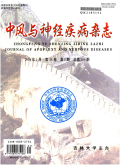中风与神经疾病杂志2024,Vol.41Issue(5):387-394,8.DOI:10.19845/j.cnki.zfysjjbzz.2024.0076
神经可塑性机制在卒中后认知功能恢复中的作用
Role of neuroplasticity in the recovery of cognitive function after stroke
摘要
Abstract
Post-stroke cognitive impairment(PSCI)has attracted substantial attention in the field of stroke research worldwide due to its high incidence rate and significant morbidity and mortality rates,but there are limited treatment meth-ods since the pathogenesis of PSCI remains unclear.Clinical observational studies have shown that patients achieve vary-ing degrees of cognitive recovery within the first 12 months after stroke,and such recovery is closely associated with the mechanisms of neuroplasticity.Gaining a deeper insight into the mechanisms of neuroplasticity is important for developing optimal strategies for nervous system repair after stroke and compensating for impaired brain functions.This article intro-duces the mechanisms of spontaneous neuroplasticity after stroke,including the plasticity of neuronal cells,synaptic neu-ral circuits,and brain networks,and their association with cognitive function and reveals the dynamic and intricate nature of neuroplasticity and brain function recovery.Subsequently,the article discusses the treatment methods for enhancing neuroplasticity,including pharmacotherapy,rehabilitation training,and noninvasive brain stimulation,and points out that early intervention may help to achieve a good outcome.Although there is a lack of clear clinical evidence for some new methods,inspiring results have been obtained in preliminary studies,which may help to initiate a new era in post-stroke therapy.关键词
神经可塑性机制/卒中后认知障碍/认知恢复/治疗Key words
Neuroplasticity mechanisms/Post-stroke cognitive impairment/Cognitive recovery/Treatment分类
医药卫生引用本文复制引用
方嵘,陈生弟..神经可塑性机制在卒中后认知功能恢复中的作用[J].中风与神经疾病杂志,2024,41(5):387-394,8.基金项目
上海市教委科研创新计划(2017-01-07-00-01-E00046) (2017-01-07-00-01-E00046)

